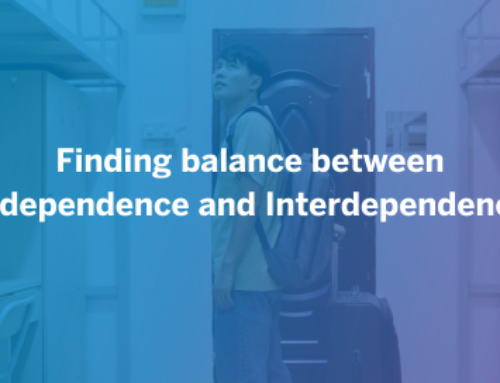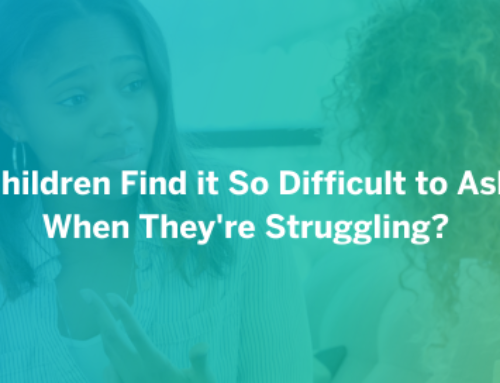
He stood there fidgety, his big brown eyes, looked up at me and his deep, raspy teen voice asked with uncertainty, “Mom, can we talk?” Chances are, if you are a teen parent, this question will cause your heart to palpate and your palms to sweat because of two specific reasons. First, your teen wants to spend time with you and needs your advice on something (yay), or second, something horrible happened, and they are in trouble. Either way, you will drop anything you are doing and talk. Whether it’s a question about sex and drugs or a question about their science test or cafeteria food, the way you talk to your teen matters, especially when it comes to meaningful conversations.
While parenting teens is not rocket science, it can often feel like a much more challenging endeavor. In reality, thinking like a scientist is a great strategy to teach your teen. To think like a scientist, you must ask questions, make detailed observations, develop a hypothesis, find answers using tests, and question your answers. Teaching your teen how to implement similar strategies in real-life situations will not only help guide them in how to handle challenging problems, but it can also be one of the best ways you and your teen can build a common language. Below are three talks you should have with your teen that can help create trust, build understanding and open up the doors on all topics, easy or hard.
Discuss the Importance of Questioning:
Not only is asking questions important in any discussion you have with your teen but teaching them how to question is one of the most powerful gifts you can give them. Questions will help them put into words thoughts that can be hard to articulate. Talking to them about how to question can help broaden their mind and think of different ways they can view situations, people and themselves. For example, let’s say your teen was told by a friend that everyone their age had already started having sexual intercourse and if they didn’t hurry up they would be thought of as a prude or uncool.
Your teen might accept this and quickly start stressing about being left behind. They might ignore how they truly feel and have sex too soon before they are ready. However, if you talk to your teen about the importance of questioning there is a good chance that they stop and think before they act. They may ask themselves, “Am I really the only one not having sex?” “What would happen if I do?” “What if I don’t?” “What do I really feel?” Talking to your teen about questioning can help them develop healthy decision making skills that will last a lifetime.
Talk Over Critical Thinking:
Another meaningful conversation you may want to have with your teen involves taking their formulated questions and helping them learn how to dig deeper. Once they have stopped to ask the “what” in a problem, the next step is to help them start to figure out why. Talk to your teens about the importance of understanding the “why” in every situation they face. For example, if a friend came up to your teen and asked them to vape. Your teen might already know to stop and ask the questions like, “What exactly is this friend trying to get me to do?” “What would the consequences be?” It might help them pause and think, but the following essential question for them to ask is why. “Why would my friend want me to try this?” “Why do I feel scared inside?” “Why should I listen to my friend, or why should I not?”
When we help our teens to think past what is happening and start questioning why it’s happening, we help them to formulate a clearer picture of the issue they are facing. They will be more able to stop and consider different viewpoints and help them understand the next essential step in figuring out how they will deal with the dilemma. Unfortunately, we cannot determine what problems our teens will face, but by giving them the tools to ask higher-order questions and think deeper, they will be better prepared to handle hard situations that come their way.
The best way to talk about critical thinking with your teen is to clearly illustrate the difference digging deeper into questioning makes. Watch the news together, read a book or movie and discuss the reasons why the people or characters might have acted in a certain manner. When you help your teen develop their critical thinking and questioning skills they will be able to increase their understanding of others viewpoints, be less resistant to change, develop more empathy and become more attuned and aware of their own thoughts, feelings and motivations.
Have a Heart-to-Heart About Boundaries:
According to Dictionary. com, the definition of boundaries is something that indicates bounds or limits. Perhaps one of the most vital talks you will ever have with your teen is about boundaries. This talk is essential because it will help them clearly define their limits in all aspects of their life. It will, also, help them honor, respect, and value the boundaries of other people. Taking the time to talk to your teen about boundaries and how to implement them will set the stage to create healthier friendships and relationships.
The best way to talk about boundaries is to tell them about yours. Let them know how you establish boundaries in your friendships and relationships—starting with the ones you set with them. Talk to them about what is acceptable and unacceptable in the way they speak, treat, and behave around you. Bring up the importance of being able to say “no” to others and accept when others say “no” to them. Let them know that setting up boundaries will help them clearly communicate their wants, needs, and values to the people they care about and ensure that they are respected. Lastly, explain the different types of boundaries, which include physical, mental, emotional, and spiritual. Ask them to share with you what they feel is acceptable or unacceptable behaviors in all these areas.
There are many conversations you will undoubtedly, want to make sure to have with your teens, like drugs, sex, and underage drinking. If you take the time to talk over these three key prevention strategies, you will help them establish a system they can
implement by stimulating their brains to think and their hearts to listen.
Carolina Droze is a LSIS presenter of K-5th programming, freelance writer and copywriter. She is also a mom, wife, surfer, nature enthusiast and a lover of loud music and dancing like she just don’t care.







